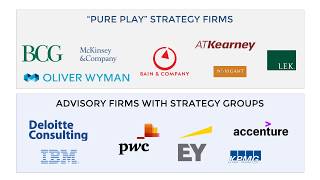
Oracle is one of the most popular names in IT. This multinational computer technology corporation is based in Austin, Texas, and was the third-largest software company in the world by 2020. It employs over 33,000 people worldwide and has become one of most popular IT consulting businesses in the world. However, junior developers are also available. Read on to learn how.
Create a job
The CREATE JOB command creates a job object with the attributes start_repeat_interval and finish. These attributes are used to determine when a job should run again. You must specify a start date in order to schedule a job that runs more than once. You can set the repeat_interval attribute using DBMS_SCHEDULER package procedures and the Enterprise Manager. Calendaring syntax allows you to specify the time zone of the next run.
Once you've created a job, it is possible to specify its arguments. These arguments can be used to override a default value or specify the value for a particular program argument. This is particularly important if a job involves an inline or stored action. Before enabling the job, specify the value of each argument. Also, it is important to know that the job object can refer to multiple destinations.

Schedule a job
One way to schedule a job is to use the 'job oracle' feature. It is possible to create a job and have it repeat. However, you must specify a recurring time for it to run. You can also create a repeat interval that is complex, such as every Monday at 3.30 a.m. except on public holidays or every Wednesday of a quarter.
The process is made easier by specifying a repeating interval. The scheduler will store the next scheduled run in a timestamp that contains the time zone. This time zone can be retrieved using the start_date parameter within the calendaring syntax. For more information about the use of the start_date parameter in Oracle Database PL/SQL Packages, and Types Reference. The schedule can be modified after you have set a repeat interval.
You can quit your job
How to Drop a job in Oracle? There are many ways you can drop your Oracle job. A common method to do this is the DROP_JOB operation. This procedure will allow you to drop jobs, job classes, and any child jobs. You can also drop a job when it fails. The DROP_JOB method supports both the force option and the defer option. Be sure to understand the effects of job loss on your database if you are going to terminate a job.
For event-based jobs, you can use the SET_ATTRIBUTE procedure to set the event-specific attributes. You will need to specify the event_spec attribute. If the destination is not specified, the job will be executed on the host that it was created. When it reaches its maximum number or fails, or when the job is finished execution, the job will be cancelled. You can also specify the job's start and end dates using the event_condition or queue_spec attributes.

Analyze the job activity
To optimize your workforce, it is a good idea to create a strategy workforce plan. Analyzing a job can identify any hazards, improve working conditions, and identify future needs for work. Most often, hiring and working conditions are regulated by federal and/or state laws. To ensure that your job is compliant with regulations, you should conduct a job assessment. Once you've identified areas where you need to improve, you can implement improvements that will increase efficiency.
Depending on the complexity of the job, it may be necessary to collect data on the different aspects of employee tasks. A typical job may have 100 tasks. Each task can be categorized by importance, frequency, difficulty, and importance. For example, a doctor's office receptionist might have several duties, including taking appointments, answering basic medical questions, and administering health records. A job analysis is a great way to help your organization identify the most important aspects of the position and cut costs.
FAQ
What happens after the consultant has finished the job?
After the consultant completes the work, s/he will submit a final report detailing the results of their work. This report contains all relevant information, such as project timelines and deliverables.
After that, you'll go through the report and decide if it meets your expectations. If you are not satisfied with the consultant's report, you have the option to ask for modifications or to terminate your contract.
Do I need to pay tax on consulting income?
Yes, you must pay tax on the consultancy profits. The amount you earn depends on your annual income.
You can also claim expenses if you are self-employed. This includes rent, childcare, food, and transportation.
However, you cannot deduct interest payments from loans, vehicle repairs, or the cost for equipment.
If you earn less than PS10,000 per year, 25% can be claimed back.
But even if you're earning more than this threshold, you might still be taxed depending on whether you're classed as a contractor or employee.
The PAYE tax for employees and the VAT tax for contractors is generally paid as you earn.
What skills do I need for consulting?
Strong interpersonal and analytical skills are essential for consultants. This is crucial because you might not be able to understand what you are doing when you work on complex projects. It is important to learn how to quickly solve problems and manage people.
Excellent communication skills are also essential. Most clients expect an answer within 24hrs. If they don't hear anything, it is likely that they aren't interested in you. It is vital to inform them and make sure that they are fully informed.
Statistics
- WHY choose me: Why your ideal client should choose you (ex: 10 years of experience and 6-week program has helped over 20 clients boost their sales by an average of 33% in 6 months). (consultingsuccess.com)
- On average, your program increases the sales team's performance by 33%. (consultingsuccess.com)
- Over 50% of consultants get their first consulting client through a referral from their network. (consultingsuccess.com)
- 67% of consultants start their consulting businesses after quitting their jobs, while 33% start while they're still at their jobs. (consultingsuccess.com)
- "From there, I told them my rates were going up 25%, this is the new hourly rate, and every single one of them said 'done, fine.' (nerdwallet.com)
External Links
How To
What should I do to get started with a consulting business?
Starting a Consulting Company is a great way to make money online from home. You don't need any previous business experience or investment capital. A good place to start your own consulting company is to build a website. After you have built a website, social media platforms such Instagram, Pinterest and LinkedIn will be useful to spread the word about your services.
You can create a marketing strategy that includes these things with these tools
-
Creating content (blogs)
-
Establishing connections (contacts)
-
Generating leads (lead generation forms)
-
Selling products (eCommerce websites)
Once you've developed your marketing strategy, you'll need to find clients who will pay for your services. Some prefer to connect with people through networking events. Others prefer to use online resources like Craigslist and Kijiji. Your choice is yours.
Once you've found new clients, you'll want to discuss terms and payment options. You can discuss hourly rates, retainer agreements, flat fees, and other options. It is important to clearly communicate with clients before you accept them as clients.
Hourly agreements are the most common contract type for consultancy services. In this case, you agree to provide certain services at a fixed rate each month or week. You may be able negotiate discounts depending on what service you offer. When you sign a contract, make sure you fully understand it.
Next, create invoices. Send them to your clients. Invoicing is one thing that looks simple until it's actually done. There are many options for invoices to be sent to your clients. For example, some people prefer to have their invoices emailed directly to their clients, while others print hard copies and mail them. Whatever your preferred method, make sure it works well for you.
After you've created your invoices, you can collect payments. PayPal is popular because it is easy to use, offers several payment options, and most people prefer it. There are many other payment options, such as Square Cash, Square Cash and Google Wallet.
Once you are ready to start collecting payments, it is time to open bank accounts. Having separate checking and savings accounts allows you to track income and expenses separately. It is also a good idea to set up automatic transfers into your bank account for paying bills.
When you start a consultancy business, it may seem overwhelming, but once you learn how to do it correctly, it becomes second nature. This blog post will provide more information about starting your own consultancy business.
It's a great way for extra income without having to worry about hiring employees. Consultants can work remotely so they don't have the hassle of dealing with office politics and long working hours. Because you don't have to work a set number of hours per week, you can be more flexible than a traditional employee.